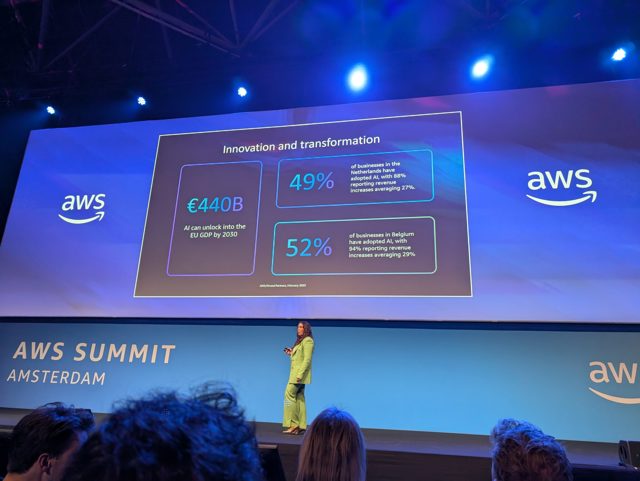< Back to news 


18 September, 2023
Two Faculity Members from ELLIS Amsterdam Elected as Fellows of the ELLIS Society
The European Laboratory of Learning and Intelligent Systems (ELLIS) Fellowship Programme brings together academics at regular meetings throughout Europe to promote a free exchange of ideas and help create a European community of top AI researchers to retain and attract talent. Together, they stand up for European interests and generate high international visibility.
Two distinguished ELLIS unit Amsterdam faculties, Raquel Fernandez and Marcel Worring have recently been elected as Fellows of the ELLIS Society network. As the ELLIS Society Fellows, they act as ambassadors of ELLIS in advancing science. They provide strategic advice and leadership not only scientifically, but also pertaining to the advancement of ELLIS.
Raquel Fernandez
Raquel Fernandez’s research concerns natural language processing, with a focus on linguistically and cognitively inspired approaches to conversational AI. In a nutshell, my group investigates how dialogue interaction shapes learning — about the world and about language itself. Our interests include language generation, vision and language modelling, uncertainty in NLP, and computational pragmatics.
Marcel Worring
Marcel Worring is leading the MultiX group. In the MultiX group we research multimedia analytics by developing techniques for getting the richest information possible from the data (image/video/text/hyper-graphs) based on adaptations and finetuning of multimodal foundation models, interactions that learn from the user action to support hybrid intelligence, and user interfaces to bring AI techniques and the user together for applications in health, forensics and law enforcement, cultural heritage, urban livability, and social media analysis. We perform research in three ICAI labs: the National Police Lab AI, the AIMlab with the Inception Institute for Artificial Intelligence and the AI4Forensics lab with the Netherlands Forensics Institute.”
In order to be an ELLIS Society Fellow, a faculty member is nominated and the proposals are verified and considered against a set of objective criteria, which includes, among others, a high number of publications at top-tier conferences, research impact (h-index / citations), and prestigious awards, prizes, honors and grants. More information regarding the ELLIS fellows can be found here: https://ellis.eu/fellows.
Currently, the ELLIS unit Amsterdam has six ELLIS Society Fellows and four ELLIS Society Scholars. You can view them here: https://ivi.fnwi.uva.nl/ellis/people-3/.
Vergelijkbaar >
Similar news items

April 16, 2025
AWS: Dutch businesses are adopting AI faster than the European average
New research from AWS shows that Dutch businesses are rapidly adopting AI—at a rate of one new implementation every four minutes, well ahead of the European average.
read more >

April 16, 2025
Submit your nomination for the Dutch Applied AI Award 2025
Do you know or develop an innovative AI application? Submit it now for the 2025 Dutch Applied AI Award, presented at the Computable Awards.
read more >

April 16, 2025
UK government tests AI to predict murders
The UK government is developing an AI system that could predict who is most likely to commit a serious crime. Critics call the project dangerous and discriminatory.
read more >